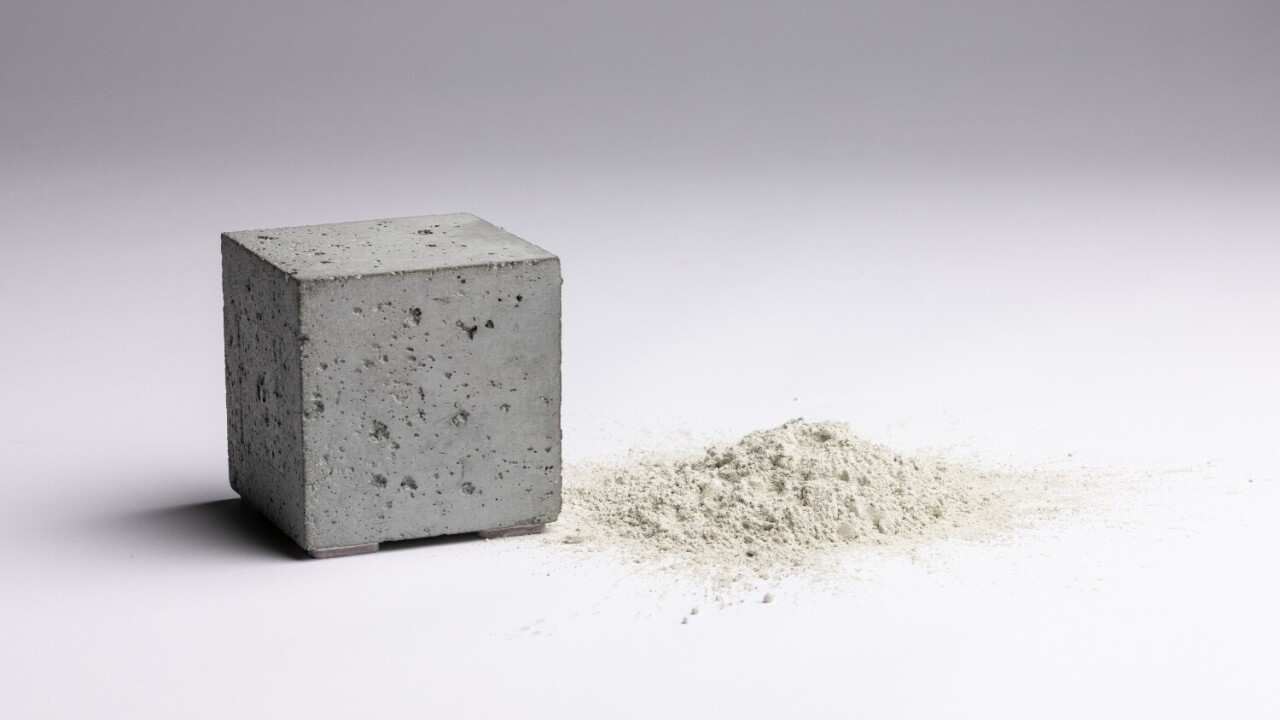
Dutch-Nordic carbon capture startup Paebbl has raised $25mn as it looks to turn the sector that uses the bulk of the world’s mined materials — the built environment — into a permanent sink for the world’s most potent greenhouse gas — CO2.
Berlin-based VC Capnamic led the round, with participation from the likes of Amazon and German cement industry giants Holcim and Goldbeck. Paebbl will use the fresh funds to expand its offices in Helsinki, Stockholm, and Rotterdam, where its pilot plant is located.
In June, we visited the facility, discreetly hidden amid the sprawling docks, warehouses, and factories of Europe’s largest port. It’s also conveniently positioned a stone’s throw from some of the world’s biggest carbon emitters — Shell, BP, and ExxonMobil.
When I arrived at the facility, I was greeted by co-CEO Marta Sjögren, a former Northzone partner who co-founded Paebbl in 2021 alongside early Klarna investor Jane Walerud, former Slush CEO Andreas Saari, and Dutch scientist Pol Knops.

Paebbl is one of an emerging cohort of carbon removal startups looking to capture CO2 and use it as a resource to make new, cleaner products. Known as carbon capture, utilisation, and storage (CCUS), this differs from the more established carbon capture and storage (CCS) championed by the oil and gas industry, where carbon is captured at source and buried underground.
“CCUS will be a core lever for decarbonisation,” Sjögren, originally from Sweden, told TNW. “And luckily, world governments and hard-decarbonise industries like cement and steel are starting to realise that.”
Supercharging carbon mineralisation
On that rainy day in June, Paebbl was celebrating its first ton of carbon dioxide (CO2) captured. While just a tiny fraction of the billions of tons we need to remove from the air to meet climate goals, for the startup, it was a crucial milestone.
Paebbl’s technology — which, to the untrained eye, looks like a tangled mesh of metals pipes, valves, and vats — artificially accelerates the slow, natural process of carbon mineralisation.
In nature, carbon mineralisation naturally occurs over hundreds or thousands of years when certain minerals inside rocks react with atmospheric CO2 to create carbonates like limestone. Paebbl’s reactor supercharges this process — mineralising a lot more CO2 in a lot less time.
Paebbl feeds CO2 captured from industry — and in the future, from its own direct carbon capture (DAC) machines — and crushed olivine rock into its machine, where it undergoes enhanced mineralisation. The CO2 turns into CO3 (carbon trioxide) and binds to the olivine. For every ton of CO2 captured it produces about three tons of powder, the scientific name for which is “silicon-rich” magnesium carbonate.
This powder feels like a soft, fine dust and is gray with a tinge of green from the olivine it’s made from. Around half of the emissions from cement are produced when limestone is heated to produce lime. Paebbl’s powder can replace lime and other additives in things like wall filler, turning buildings into carbon sinks.
Scaling up
In June, Paebbl was hurriedly putting together the pieces of its first demonstration plant, scheduled to open early next year. With the new facilities, the startup will ramp up its production capacity tenfold to 3 tons of rock powder per day, for use in trials by pioneering industry partners — presumably, the likes of Holcim and Goldbeck.
The next step is a commercial-scale plant, scheduled for 2027. While the company hasn’t yet disclosed the location of this facility, Marta says that they will focus on setting up factories in areas with “high demand for end products (building material), nearby feedstock supply (CO2 and olivine rock)”, and access to renewable energy. In Europe, the Nordics, Spain, and Portugal stand out in this respect.
Paebbl aims to bring 1 million tons of its product to the market by 2030. The startup will make money from selling the rock powder itself and through providing carbon removal credits to companies looking to offset their emissions.
Get the TNW newsletter
Get the most important tech news in your inbox each week.




